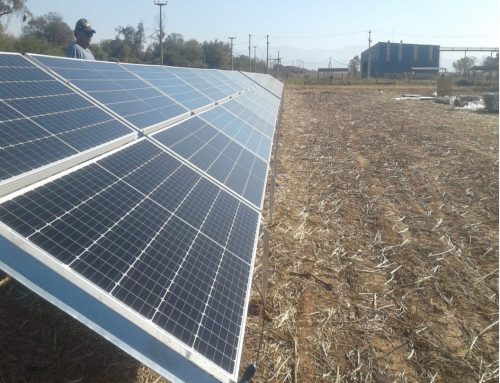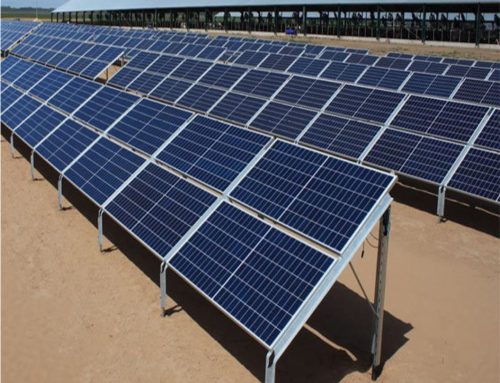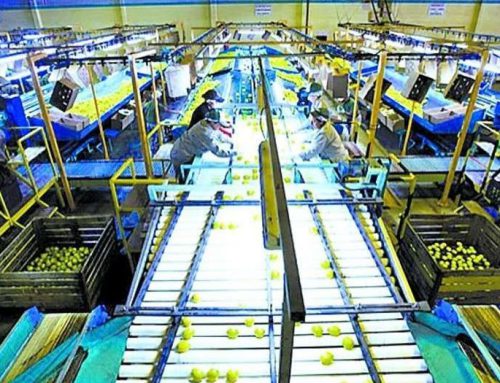LA NACIÓN, JUNE 27, 2015
In La Moraleja, a 200-hectare dam stores water to irrigate through the drip system 3000 hectares of lemons; after harvested, they are industrialized in oil, concentrated juice and husk to be exported.
APOLINARIO SARAVIA, Salta. – On a scale rarely seen in the country, La Moraleja is the most striking case of the power of transformation of man over nature to generate food and jobs. Where there was a mount in Salta, today there are 3000 hectares of lemons drip irrigated, probably the largest area in the world under this system and a factory that industrializes and exports 90% of its products: lemon oil, concentrated juices and dehydrated skin. We must add as a secondary activity, if the term fits the dimensions, 40 hectares of greenhouses to produce tomatoes, peppers and melons. And where no more than a dozen workers could be employed in an extensive activity, 1,500 people are employed, 400 in a fixed way and 1100 as temporary workers.
The beginning of this productive miracle, which last year won in the Best Agrifood Industry category in the Award for Agricultural Excellence granted by La Nación and Banco Galicia, is due to obstinacy and stubbornness. Ignacio Blanco is a Spanish agronomist who arrived to Argentina at the beginning of the eighties, commissioned by the Sanchis family to take over the field they had bought in Salta. Ignacio Blanco was clinging to a truth he had learned in the region of León where he had been born and barely raining just over 400 millimeters per year: without water, there is no possible production. The first thing he observed was that the field of Apolinario Saravia had a variable rainfall regime and was in the summer months. The 800 millimeters per year fell all together and did not change the situation of crop water deficit.
But the water that did not come from the storms was in the Cabeza de Vaca stream that passed through the establishment. The water course went through an absolute indifference without anyone thinking of taking advantage of it. For Ignacio Blanco, this situation represented the height of nonsense. He then persisted in using many years to build, with limited resources and own machinery, a channel that separates the stream and a 200-hectare dam with the capacity to store 11 million cubic meters of water. And he could locate it in the highest part of La Moraleja so that, by gravity, and without the use of energy, the entire surface could be watered. “Everyone here was against this idea. They thought I was crazy. The important thing is that the dam worked and never broke. Without water we were never going to be able to water the lemons and the greenhouses and get to have this productive project,” says Blanco, who with more than seventy years is a concentrate of will and knowledge.
Once the dam was built, it was thought to irrigate sugarcane crops. Until lemon appeared. Or rather the agreement with one of the world giants of soft drinks, whose name they maintain in the utmost confidentiality, which assured them the purchase for twenty years of the lemon oil.
This gave them a security and a horizon to bet heavily on the project and generated the final turn to La Moraleja. So they set to work and while the lemon plants were growing they started the construction of the factory that took them about two years. They had to synchronize the production times with those of the industry until joining the full integration. It was not easy if you take into account that the process begins in lemon seedlings in greenhouses that are then grafted to tangerines, for having a better and healthier root system, to then be transplanted in the field. A process that takes at least four years until the profitable production of lemon has just begun. From then on, each plant can produce lemons per year 2000, albeit in a very variable way, achieving its peak of production in the ninth year. Its end of cycle is around eighteen. It goes without saying that all the activity around the lemon, from beginning to end, takes a lot of labor. They calculate that making a lemon plant leaves around $10. “You make the road by walking. Errors are natural, but the ability is to change on time and not insist on mistakes. That was our great skill,” confesses Ignacio Blanco as a piece of advice.
The commercial agreement that guaranteed them the purchase of lemon oil for twenty years also allowed them to give another great twist on the project: install drip irrigation on the entire surface planted with lemons. They traveled to Israel and hired the Israeli company Naan Dan to carry out the design and advice. The aqueduct was made by the Argentine company General Plastic.
At the time of construction, according to Israeli technicians, it was the largest project worldwide. With the particularity that irrigation is carried out by gravity. 7700 kilometers of pipes were used. Drip irrigation conforms to the concept of producing more with less to be one of the most efficient systems in the use of the resource. The necessary drop of water is deposited underground, avoiding the evaporations and losses that may occur on the surface. In addition to its use can eliminate diseases that arise from the contact of water with leaves.
The daily decision to water is taken from the information provided by phyto-monitors. By means of sensors in the leaves, in the plant and in the soil they measure the growth and estimate the future production. In addition, thanks to the management of historical data of the region of temperature and humidity can predict from the attack of fungi until the time of the harvest. They also take advantage of the system to irrigate contributing to the cultivation of lemons doses of nitrogen, phosphorus and potassium.
The demand for lemon oil by the world’s leading soft drink companies prompted an ambitious expansion plan in La Moraleja. The objective is to add 1000 hectares of lemons in the next four years. This increase will generate new jobs. They estimate that they will have 450 fixed and 2100 temporary people by the time the project ends.
Although protagonist, the lemon is not the exclusive actor of La Moraleja. The 15 hectares of tomato and melons respectively and the 10 hectares of pepper, all under greenhouse and drip irrigation, occupy a prominent place from the commercialization under its own brand, Montesol. They invoice 2.5 million dollars per year and demand a large labor force of 4 wages per hectare. “Our strength is in trying everything we can, be new varieties as new techniques. We are constantly adapting, not copying, the good that we see outside,” says Ramón Palma, responsible for horticultural production.




Leave A Comment